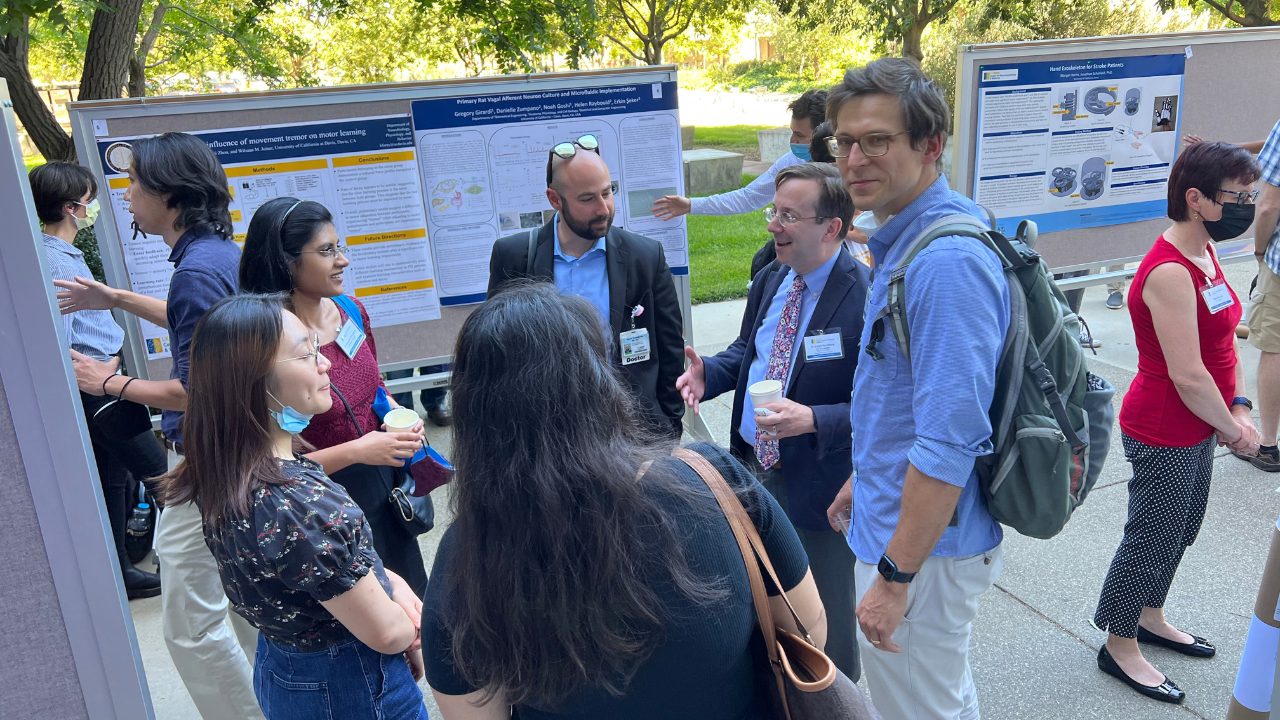Center for Neuroengineering & Medicine Launches New Designated Emphasis Graduate Program

Adapted from the original article by Matt Murphy, published at this link.
The Center for Neuroengineering & Medicine, an interdisciplinary research and education unit housed in the College of Engineering, is addressing the need to train the next generation of engineers in the field of neuroengineering with the creation of a Designated Emphasis in Neuroengineering, or DE-NE, for Ph.D. students.
The DE-NE provides the necessary structure, advising and community for training in neuroengineering and is an entry point for students in acquiring knowledge in key research areas and tools in neuroengineering and on National Institute of Health-style proposal writing.
The DE-NE launched in affiliation with the Ph.D. programs in electrical and computer engineering, biomedical engineering, mechanical and aerospace engineering, and neuroscience. Affiliation with more programs is pending.
"The new Designated Emphasis in Neuroengineering will provide a formal mechanism for Ph.D. students to pursue a specialization in this field," said Erkin Şeker, professor of electrical and computer engineering, co-director of the Center for Neuroengineering & Medicine, and acting chair of the DE-NE. "Given than a third of the world's population is affected by neurological disorders across their lifespan, there's a great need for workforce development in neuroengineering to study the nervous systems and treat and prevent its disorders."
Ph.D. students in affiliated programs may apply by contacting the DE-NE chair and must fulfill the DE-NE program requirements to receive the DE-NE designation on their diplomas. Additionally, each student's major professor must be an affiliated faculty member of the DE-NE.
Since the DE-NE was announced to students at the beginning of April, eight have already submitted applications. Among them is Peyton Young, a Ph.D. student in mechanical and aerospace engineering and recent NSF Graduate Research Fellowship awardee. Young has been engaged with several Center for Neuroengineering & Medicine activities, including the faculty team-taught Introduction to Neuroengineering course — a requirement for application to the DE-NE — and the NSF-funded NeuralStorm graduate training program led by Principal Investigator and Professor of Biomedical Engineering Karen Moxon.
"I applied to the DE-NE program because I'm interested in the neuroengineering specialization and excited for future work in this field," Young explained.
More than 40 faculty members, department chairs and other academic leaders across campus voiced support for the creation of the DE-NE. The Center for Neuroengineering & Medicine includes faculty and students associated with the College of Engineering, School of Medicine, College of Biological Sciences and College of Letters and Science. Many faculty contributed to curriculum development and presented lectures in the team-taught Introduction to Neuroengineering course, which is required for all students applying to the DE-NE.
"We enthusiastically support your proposal for establishing a Designated Emphasis in Neuroengineering," wrote College of Engineering Dean Richard Corsi and Executive Associate Dean Roland Faller in their joint letter of support. "One priority of the College of Engineering's strategic plan is to enhance interdisciplinary and collaborative research, which can be achieved by actively developing a collaborative culture among faculty, students and staff. The community created by the DE would constitute the foundation for such collaborations to take place in the neuroengineering arena."
